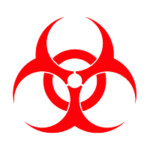Advanced Cardiovascular Life Support (ACLS) certification is crucial for healthcare workers because it teaches them how to handle serious heart emergencies, such as heart attacks. For over 35 years, nearly one million medical professionals have earned ACLS certification, showing how important it is for saving lives. However, only about 3-5% of regular people have CPR certification, which is a basic but essential skill for responding to heart emergencies before professional help arrives.
ACLS certification offers advanced training beyond basic CPR. It teaches how to manage airways, give emergency medications, and use defibrillators. This certification is vital for doctors, nurses, and paramedics who deal with emergencies. It helps them respond quickly and improve patient care in serious situations.
Learning about ACLS and why it’s important can help healthcare workers improve how they respond during emergencies. This knowledge ensures they’re ready to save lives when time is critical.
So, in this article, we’ll look into what ACLS certification includes, who should get it, and why it’s important for better patient care and improving skills in healthcare jobs.
Understanding ACLS Certification
So what is ACLS certification? ACLS stands for Advanced Cardiovascular Life Support (ACLS) certification. It is a qualification for healthcare professionals who manage cardiac emergencies, such as cardiovascular arrest, stroke, and acute coronary syndromes.
The course builds on basic life support (BLS) skills and teaches advanced life support knowledge, including:
- Chest compressions
- Using a bag-mask device to provide oxygen
- Using an AED
- Recognizing and managing respiratory issues and cardiac arrest
- Recognizing and managing peri-arrest conditions
- Related pharmacology
- Recognizing VF and VT on an ECG
This certification is really important for doctors, nurses, paramedics, and other healthcare workers in places like emergency rooms, intensive care units, and ambulances. It makes sure that healthcare professionals are ready to act quickly and well during urgent situations, which greatly increases the chances that patients will survive and get better.
ACLS courses usually cover both learning the theory and practicing skills, so people are ready to handle tough medical emergencies with confidence.
Who Needs ACLS Certification?
As mentioned above, the Advanced Cardiovascular Life Support certification is typically required for healthcare professionals who are involved in the care of patients at risk for cardiac arrest or who may require advanced cardiovascular life support interventions. Here are some specific roles that often require ACLS certification:
- Physicians and Physician Assistants
- Registered Nurses
- Nurse Practitioners
- Certified Nursing Assistants
- Nurse Anesthetists
- Medical Assistants
- Paramedics
- Pharmacists
- Dentists
- Educators
- Medical Students
It’s also important for healthcare professionals who either direct or participate in the management of cardiopulmonary arrest or other cardiovascular emergencies. This includes personnel in emergency response, emergency medicine, intensive and critical care units.
Why ACLS Certification is Important
ACLS certification is crucial for healthcare providers, especially those working in emergency and critical care settings. Here are several reasons why ACLS certification is important:
1. Advanced Skills
ACLS certification is really important because it teaches healthcare workers advanced skills for emergencies like heart attacks and strokes. Following these guidelines can make a big difference in saving lives.
Studies show that using ACLS right away can increase the chance of surviving a heart attack by up to 30%. With ACLS training, healthcare providers learn how to spot problems early, give the right medicines, and do procedures that save lives during medical emergencies.
So, getting ACLS certified doesn’t just make providers better at their jobs—it helps patients in critical situations too.
2. Improved Outcomes
ACLS certification teaches healthcare providers how to handle serious heart and brain emergencies like cardiac arrest and stroke. It gives them advanced skills to quickly spot symptoms, use treatments like CPR and defibrillation, and manage care well.
Following proven methods, ACLS-certified providers can greatly improve how patients do during emergencies.
Their fast and skilled care lowers problems and raises survival chances, giving patients the best shot at recovering in crises.
3. Team Coordination
ACLS training teaches healthcare teams to work well together in emergencies. Research shows good teamwork can reduce mistakes by 19%.
In ACLS, providers practice clear communication and coordinated roles, like team leader or chest compressor, during crises such as heart attacks or strokes. This teamwork helps improve how quickly and effectively patients receive help, making it more likely they’ll recover well.
ACLS training isn’t just about individual skills—it’s about learning to work smoothly as a team when every second counts in saving lives.
4. Career Requirements
Many hospitals and clinics require ACLS certification for healthcare jobs. It shows that healthcare providers are trained in advanced cardiovascular life support, ensuring they can handle critical emergencies effectively.
This certification is important because it demonstrates a commitment to high standards of patient care and staying updated with the latest medical guidelines.
Having ACLS certification not only meets job requirements but also reassures employers and patients that providers are prepared to respond to life-threatening situations competently. It’s a professional necessity for roles where quick, skilled intervention can make a significant difference in patient outcomes and safety.
5. Legal and Ethical Considerations
Legal and ethical aspects in ACLS training help healthcare providers know what they should do during emergencies, like getting patient consent, making quick decisions, and keeping accurate records.
Providers learn to manage these challenges responsibly, making sure patient rights are respected while giving fast and effective treatment. Following ACLS guidelines also helps prevent legal problems, which supports ethical standards in emergency medicine.
So, ACLS training not only improves clinical skills but also gives providers the know-how to handle emergencies while following the law and ethics. This promotes care focused on patients and professionalism.
6. Continuing Education
Renewal of certification is required periodically to make sure that healthcare providers stay updated with the latest emergency care practices.
This ongoing education through BLS renewal certification encourages continuous learning and competence in responding to medical emergencies. It ensures providers are knowledgeable about new protocols and technologies that improve patient outcomes. By staying current, healthcare professionals maintain their skills and readiness to handle diverse and challenging situations effectively.
This commitment to ongoing education not only enhances their ability to provide quality care but also reflects their dedication to maintaining high standards in emergency medical response.
7. Public Confidence
When people see that healthcare providers have ACLS certification, they feel confident. They know these professionals have been trained well to handle serious medical emergencies like heart attacks and strokes.
This training shows that the providers can act quickly and effectively to save lives. It gives patients and their families peace of mind, knowing that they are in good hands during critical situations.
ACLS certification assures everyone that healthcare providers are prepared and capable of providing the best possible care in emergencies, making them feel safe and secure.
The Process of getting ACLS Certification
Getting ACLS certification typically involves several steps. Here’s a general overview of the process:
1. Determine Your Requirements
Before you start getting ACLS (Advanced Cardiovascular Life Support) certification, it’s important to know the rules in your area.
ACLS certification is usually needed by healthcare workers like doctors, nurses, paramedics, and respiratory therapists who might face heart emergencies. Requirements can differ by region, so check what you need before signing up for a course.
This way, you’ll be ready to complete your certification smoothly and quickly.
2. Choose a Provider
When you want to get ACLS certification, find a trusted organization that teaches you everything you need to know about advanced heart emergency care.
This organization should have good reviews and offer classes online or in person so you can choose what works best for you. Make sure their certification is accepted by hospitals and clinics where you might work.
This way, you can be sure you’re learning the right skills and getting a valid certification when you finish their course and pass their test.
3. Complete the Course
Signing up for an ACLS certification course means picking a class that teaches important life-saving skills for healthcare workers.
You can take these courses online or in person. In-person classes let you practice CPR and using defibrillators on mannequins. If you take an online course, you might need to show these skills in person later.
The course teaches you what you need to know to handle serious heart emergencies well, so you’re ready to help in tough situations. Passing an exam at the end shows you’ve learned the ACLS methods and treatments.
4. Course Content
In ACLS courses, you’ll learn advanced skills to manage cardiac emergencies like heart attacks and strokes. The training covers recognizing critical conditions, performing CPR, using defibrillators, and administering medications.
According to the survey, nearly 475,000 Americans die each year from cardiac arrest. ACLS certification equips healthcare providers with the knowledge to improve survival rates through prompt and effective intervention.
The course emphasizes teamwork and decision-making under pressure, preparing providers to deliver advanced care in urgent situations.
5. Pass the Exam
To pass the ACLS exam, you’ll take a written test that consists of 50 multiple-choice questions. The passing score required is 84%, meaning you need to answer at least 42 questions correctly.
The exam covers topics like recognizing cardiac rhythms, understanding ACLS algorithms for treatment protocols, and knowing how to manage various cardiovascular emergencies. It’s essential to study the course materials thoroughly, practice with practice exams if available, and be prepared to demonstrate your knowledge of ACLS guidelines and procedures.
Passing the exam validates your readiness to respond effectively in critical medical situations requiring advanced cardiovascular life support.
6. Receive Certification
Once you finish the ACLS course and pass the test, you get a certification card. This card shows you have the skills to handle serious heart emergencies.
The certification lasts for two years. To keep it current, you’ll need to renew it every two years. This involves a shorter class to refresh your skills and passing another test.
It’s important to do this to stay updated on the latest methods and be ready to help in emergencies.
Challenges and Considerations
While obtaining ACLS certification is crucial for healthcare providers, it comes with its own set of challenges and considerations that individuals should be aware of:
1. Time and Financial Investment
ACLS certification courses typically require several hours of classroom instruction, hands-on practice, and assessment. Balancing these requirements with work schedules can be challenging for busy healthcare professionals.
Courses and certification fees can vary depending on the provider and location. Some employers may cover these costs, but individuals often need to invest personally in their certification.
2. Staying Up-to-Date
Guidelines and protocols for ACLS can change periodically based on new research and advancements in medical technology. Healthcare providers must stay updated with these changes to maintain effective skills.
Maintaining ACLS certification typically requires ongoing education and periodic recertification to ensure knowledge and skills remain current.
3. Balancing Work and Certification
Juggling work responsibilities with the demands of ACLS training and certification can be challenging. Healthcare providers may need to plan their schedules carefully to accommodate training sessions and study time.
Integrating ACLS principles into clinical practice requires proficiency and confidence. Regular practice and participation in simulation exercises may be necessary to maintain readiness.
4. Being Ready Personally
Besides work, ACLS certification can make people think about their readiness for emergencies in everyday life. Encouraging family and friends to learn basic CPR helps everyone be prepared for unexpected situations at home, in public places, or anywhere else.
It’s about making sure everyone knows what to do in emergencies, which keeps us all safer and more capable of helping each other when it counts the most.
Take the Next Step in Emergency Preparedness
ACLS certification is crucial in healthcare as it teaches professionals advanced skills to respond quickly and effectively during serious heart emergencies. By getting ACLS training, healthcare providers improve their abilities to care for patients and increase their chances of survival. ACLS doesn’t just benefit hospitals—it also helps create safer communities overall. Whether you’re a healthcare worker or thinking about getting certified, understanding the importance of ACLS means being prepared to handle emergencies and saving lives when it matters most.






